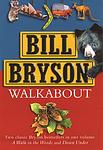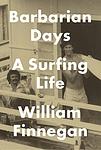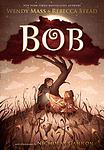The Greatest American "Australia" Books of All Time
Click to learn how this list is calculated.
This list represents a comprehensive and trusted collection of the greatest books. Developed through a specialized algorithm, it brings together 300 'best of' book lists to form a definitive guide to the world's most acclaimed books. For those interested in how these books are chosen, additional details can be found on the rankings page.
Genres
The "Australia" category for books would encompass literature that is set in or explores the culture, history, and geography of Australia. This could include works of fiction, non-fiction, memoirs, and travelogues that showcase the unique characteristics of the country, such as its diverse landscapes, indigenous cultures, and colonial history. The category would appeal to readers interested in learning more about Australia and its people, as well as those seeking engaging stories set in this fascinating part of the world.
Countries
Date Range
Reading Statistics
Click the button below to see how many of these books you've read!
Download
If you're interested in downloading this list as a CSV file for use in a spreadsheet application, you can easily do so by clicking the button below. Please note that to ensure a manageable file size and faster download, the CSV will include details for only the first 500 books.
Download-
1. The Sixth Extinction: An Unnatural History by Elizabeth Kolbert
The book explores the concept of the sixth extinction, suggesting that we are currently in the midst of it due to human activity. By examining previous mass extinctions and the current rapid loss of species, the author argues that humans are causing a mass extinction event through climate change, habitat destruction, and spreading of non-native species. The book offers a sobering look at the impact of human behavior on the natural world, emphasizing the urgency of addressing these environmental issues.
-
2. Down Under by Bill Bryson
In this travelogue, the author embarks on a journey through Australia, exploring the vast and diverse landscapes of the continent, from bustling metropolitan cities to remote outback territories. With his characteristic wit and keen observational skills, he delves into Australia's history, culture, and natural wonders, uncovering a myriad of fascinating facts and engaging with a host of intriguing characters along the way. The narrative is peppered with humorous anecdotes and insightful commentary, providing a vivid and entertaining portrait of a country that is both wildly beautiful and curiously enigmatic.
-
3. Mutant Message Down Under by Marlo Morgan
The book is a fictional account presented as a true story about an American woman's spiritual odyssey through the Australian Outback. Accompanied by a group of Aboriginal people, she embarks on a four-month-long walkabout, during which she learns about their culture, beliefs, and connection to the land. The journey is transformative, challenging her Western values and perspectives as she gains insights into the wisdom and customs of her hosts. The narrative explores themes of environmentalism, spirituality, and the clash between modern civilization and traditional ways of life.
-
4. The Dead Heart by Douglas Kennedy
The novel centers around a young American man who embarks on an impromptu road trip across Australia, seeking adventure and escape from his mundane life. His journey takes a dark turn when he becomes stranded in a remote, insular Outback town. There, he encounters a bizarre cast of characters and becomes entangled in their twisted lives, leading to a series of disturbing and violent events. The story explores themes of isolation, culture clash, and the menacing underbelly of rural Australia, challenging the protagonist's perceptions of freedom and the allure of the unknown.
-
5. Collapse by Jared Diamond
"Collapse" is an exploration of why certain societies throughout history have thrived while others have deteriorated and collapsed. The book delves into environmental problems, climate change, rapid population growth, and unwise political decisions as factors that contribute to the downfall of a civilization. The author uses examples from history such as the Mayans, the Vikings in Greenland, and modern examples like Rwanda and Haiti, to illustrate his points. It serves as both a historical analysis and a warning for modern societies to learn from the past in order to avoid a similar fate.
-
6. Why Nations Fail by Daron Acemoğlu, James A. Robinson
This book delves into the origins of power, prosperity, and poverty, arguing that the fate of nations is determined not by geography, culture, or ignorance, but rather by the institutions that shape economic incentives and political power. It contrasts inclusive institutions, which enable and encourage participation by the great mass of people in economic activities that make the best use of their talents and skills, with extractive institutions, which are designed to extract incomes and wealth from one subset of society to benefit a different subset. Through a wide array of historical examples and analysis, the authors demonstrate how the interplay between these institutions has led to divergent paths of development among nations, suggesting that those with inclusive institutions tend to enjoy greater prosperity and success.
-
7. The World Until Yesterday by Jared Diamond
This book provides a comprehensive examination of traditional societies, drawing on the author's extensive fieldwork and the broader anthropological record to explore what the modern world can learn from people who have lived in small, close-knit communities for thousands of years. It delves into various aspects of traditional life, including conflict resolution, child-rearing practices, treatment of the elderly, and risk management, offering insights into human behavior and social evolution. The work challenges readers to consider the benefits and drawbacks of both traditional and modern societies, suggesting that understanding our past can offer valuable lessons for addressing contemporary issues.
-
8. Barbarian Days: A Surfing Life by William Finnegan
"Barbarian Days: A Surfing Life" is a memoir that chronicles the author's lifelong passion for surfing. The book takes readers on a journey from the author's childhood in California and Hawaii to his travels around the world in search of the perfect wave. Along the way, he experiences diverse cultures, faces danger and adventure, and examines his own character and motivations. The memoir is not just about surfing, but also a reflection on relationships, self-discovery, and the irresistible pull of the ocean.
-
9. Upheaval by Jared Diamond
This book delves into how nations cope with crises and the factors that determine their success or failure in overcoming them. By examining several countries' responses to profound upheavals, the author identifies a set of common challenges and solutions that can guide societies facing similar issues. Drawing parallels between personal psychological coping mechanisms and the ways countries navigate crises, the book offers a unique perspective on resilience, adaptation, and the critical choices that shape the destinies of nations. Through detailed case studies, it explores the complex interplay between national identity, societal flexibility, and the capacity for self-assessment, ultimately providing insights into the processes that enable societies to survive and thrive in the face of adversity.
-
10. The Forge Of God by Greg Bear
"The Forge of God" is a gripping science fiction novel that explores the devastating consequences of an alien race's arrival on Earth. As humanity grapples with the imminent destruction of the planet, two parallel storylines unfold: one following a group of scientists desperately trying to understand the alien technology and find a way to save humanity, and another focusing on a family's journey as they navigate the chaos and uncertainty of the impending apocalypse. With its thought-provoking themes and intense narrative, this book delves into the complexities of human nature and the profound impact of extraterrestrial contact.
-
11. Bob by Rebecca Stead, Wendy Mass
"Bob" is a heartwarming story about a girl named Livy who returns to her grandmother's house after 5 years and finds a small, green creature named Bob waiting for her. Bob claims to have been waiting for Livy for 5 years and Livy has no recollection of him. As Livy tries to figure out who Bob is, she embarks on a magical adventure that leads her to uncover the truth about Bob and herself. Through their journey, Livy learns about the power of friendship, imagination, and the importance of being true to oneself.
-
12. On Fragile Waves by E. Lily Yu
The book tells the poignant tale of a refugee family fleeing war-torn Afghanistan in search of a better life. Through harrowing journeys over land and sea, the narrative follows the family as they navigate the perils of smugglers, treacherous waters, and hostile immigration policies. The story is seen primarily through the eyes of the young daughter, whose vivid imagination and storytelling offer both an escape from and a means of processing the harsh realities they face. As they move from one temporary haven to another, the family's bonds are tested, and they struggle to maintain hope amidst the uncertainty of their future.
Reading Statistics
Click the button below to see how many of these books you've read!
Download
If you're interested in downloading this list as a CSV file for use in a spreadsheet application, you can easily do so by clicking the button below. Please note that to ensure a manageable file size and faster download, the CSV will include details for only the first 500 books.
Download










